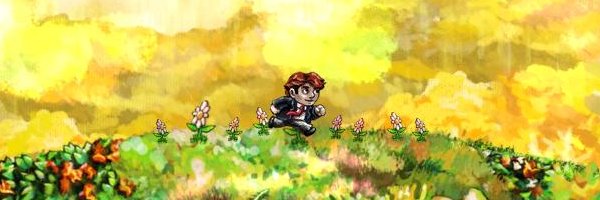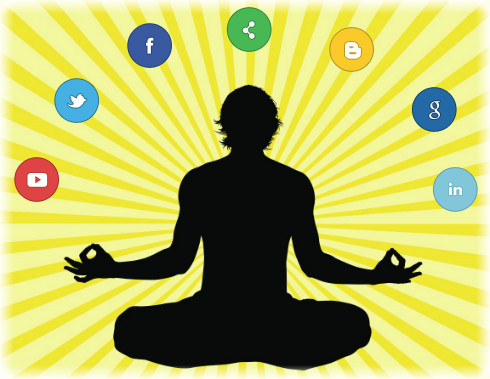NocturneGames
Mark joined
Nocturne Games is a one man games developer that uses the Yoyo Games tool "GameMaker" to make high quality games for all to enjoy!
It's well known that marketing is important. In fact, if you were to ask any successful dev how they split their time up, they'll probably say 50% making the game and 50% marketing. Which may seem like a lot of time spent on something that you think is unimportant - the attitude that a good game will sell itself is still prevalent amongst many people - but in the super-saturated stores that everyone uses, your game will disappear if it's not marketed correctly.

So, what does marketing your game consist of? When do you start to tout it about and generate interest? Where and how can you market it? Those are questions that I'll try to answer in this article, although it should be noted that I'm going to talk in general terms about things as marketing is almost as much an art-form as making games, and what works for one will not always work for another...
The Indie Boom
Before 2008, marketing for indie games consisted of nothing more than posting in a forum like the GMC and emailing EXE's to friends (okay, that's an exaggeration, but it wasn't a "big thing"). But in 2008 a couple of interesting things happened that changed all this: The Apple App Store opened and a few indie games hit it BIG (Braid and World of Goo, for example). These games broke many molds and crossed over from the niche indie game-space into mainstream, proving to thousands of bedroom developers that small games can make it big, and the App Store provided a new marketplace for these same developers to post their smaller gamedev projects with a guaranteed audience. However a guaranteed audience didn't mean guaranteed sales as getting exposure and coverage was still a problem, and over the intervening years this hasn't changed - in fact it's gotten worse - meaning that devs have to learn the art of marketing if they want to get their games noticed.

When To Start Marketing?
A common mistake that is made by small dev teams is to start marketing their game when it's finished or nearly finished. This is not the way to do things! The main bulk of your sales will come from the first few weeks of release, so if people haven't heard about your game before this, then your sales will suffer badly. So when should you start to move your game around the social media circuit? Basically, you should start the moment you have something worth showing. How you define what is worth showing will depend on the game, but it could a finished level, polished concept art, a video showing the core mechanics, or even a rough demo... The important thing is to get something out there and then follow it up with regular updates.
Note though, that this doesn't mean you should start spamming out screenshots and demos all over the social networks right from the get go, especially if they are full of "programmer art" or are not visually polished. Select a single media outlet to start with - like Vine or Twitter - and post a very small and select number of things then slowly build on that based on the feedback and response you get. Too much too soon will bore people and turn them off, making them dismiss your project as another wannabe Fez or something.

What Should You Be Doing Then?
Okay, so you have a beautiful mock-up of your game, and/or a solid demo with the core mechanics... what now? Let's just list the main things that you should be considering:
- Make A Website: Yes, I know you're a gamedev and not a web designer, but that's why things like Wordpress exist... Your game and company/studio need a place to "live" on the internet and you really should have a home base for your product or products. The website can be for all your projects, with the current one taking up the main feature space, or you can have one for just a single project, but you really need somewhere that you can link to that isn't a social network.
- Write A Dev Blog: People love to read about other people's work, so consider keeping a dev blog, either on your own website or somewhere where gamers and devs will read it (like IndieDB, for example). Dev blogs give players and other devs an insight into how your game is being built, and if you write in a personal way it will engage them on a personal level and give them an emotional interest in your game and it's trials and tribulations. However, don't post every bug and detail about what you're doing, and instead try to keep it interesting. It is better to write infrequently but have quality, interesting content than to write constantly every minor detail and bore your readers.
- Sign Up For Social Networks: This is something else you will have to do if you want to succeed. At the very least, you'll need a Twitter account and a Facebook page, but you should consider other things like Tumblr, Vine, Twitch and even Google+... There's a lot more to say on this point, so we'll discuss it a bit further on.
- Make Videos: For me this is one of the hardest things to do as I really don't have much of a clue about video editing and production, but there is no denying that in the visual culture we live in, a video can do wonders for your game. Even if you have to ask for outside help, you should consider posting videos to Youtube and Vimeo to showcase features or highlight game mechanics. These videos will tease your audience and hopefully engage them enough that they'll want to see more. Take a cue from the movie and TV industries, where they create dozens of trailers and teasers throughout the creation of the film to increase hype and show off characters or scenes... it works for them, so it'll work for you too!
- Contact Let's Players: Once you have a decent amount of content and a Beta/Finished game, it's worth contacting some of the YouTube Let's Players. Sending them a copy of your game and politely asking if they'd be interested in playing it could pay off big time, as there are a number of them with massive audiences who will give your game exposure to a very wide demographic of potential buyers.
One other thing that is well worth the time to set up is a Press Kit page. It's a great way to get all your studio and game information in one place along with graphic resources like screenshots and icons for anyone to use. This has been made really easy thanks to the work of Rami Ismail (@tha_rami) of indie studio Vlambeer and his DoPressKit{}, so if you haven't thought about this, you really should look it up.
Become A Social Media God
Social media is important. Very important, but it's also very easy to abuse, so you should be careful what you do with it and how you use it. With Twitter you should follow other developers you are interested in as well as members of the press that are related to the genre or OS that your game is targetting, however you should not tweet them unsolicted messages about your game. Wait and see if they retweet or favourite anything you post and only after you've seen they are interested should you think about tweeting them... although you'd probably be better holding off until you have an established following and you know they are interested in the project before any type of direct contact.

What about when you should post? Well, in general it's best to post your updates when you know that people will be watching, which means between 11am and 11pm, more or less. Better still, you can post twice, once in the morning and again twelve hours later and that way you can be sure that the maximum number of followers will see them. However, again, don't overdo it and be careful not to saturate peoples timelines with your tweets and posts as they'll quickly get fed up and stop paying you any attention... only post things that you think are important or interesting or entertaining (little known fact - funny and humorous posts will get higher likes/retweets/follows).
One thing to be very careful of is becoming a serial follower/liker. If you just go around following everybody then it smacks of desperation and shows a lack of discretion that others will pick up. Follow only those people that you really have an interest in and that you think will supply you with valid and interesting information and insights, and/or be interested in your projects. It's better to have 3000 followers and follow only a few hundred than the other way around (although to start with you will inevitably be following more than than those that follow you).
Other than Twitter and Facebook, you can also post your trailers and preview material to Reddit, in particular the Indie Gaming sub-reddit, but when you do, avoid "buzz words" like Epic and Awesome and Ground Breaking, etc... Be sincere and to the point and you'll do better! You can also join Facebook groups for independent GameDev (there are a number of them), or Google+ gamedev and GameMaker circles and share stuff that way. Also remember to keep your Facebook and website pages up to date and active, as it's almost worse to have them up but with no content than not to have them at all, and your website should have direct links to all your social media profiles and act as a "hub" for them.
Meeting Your Audience
So you are now shouting across the social media wavelengths about your game and you're getting some interest going. The game itself is progressing nicely and you're feeling like you are ready to actually start showing it to people in a more direct way. What to do? Well, you can consider attending one of the expos that are held for indie games. The obvious choice would be PAX, as it is such a massive event that thousands of people will be exposed to your game... but getting there and could be expensive - and getting a stand even more so, although you could do "guerilla marketing" and just hand out CD's or fliers as you wander around - so maybe the Indie Mega Booth could be for you? You'll get your game to PAX and it'll be cheaper, although you'll still need to fork out $500 or so... What about submitting your game to the IndieCade festival? That'll only cost you $80-$90, although there is no guarantee that your game will be accepted, but if it is then you can expect a massive rise in interest - and subsequent sales - of your game.

Even if you can't get the money together to get a booth for these big events, you can still go to them, or other smaller ones, and make contact with people, spreading the word about your project and giving out fliers etc... This will put a human face on your studio and help keep it in the hearts and minds of your audience.
The Press
I could probably write a whole article on what you should and should not do when contacting the press (and I may still...), but I'll try and summarise what I consider to be the most important points. Remember, the gaming press can make or break a game, and so you have to be careful who you contact and how, otherwise you don't just risk losing interest in your current project, but you also risk losing interest in all your future projects too. So treat the press with honesty and respect, and try to follow these basic rules:
- Be Realistic: Don't think that IGN or one of the other major networks will be interested in your game right from the start. They might be but it's highly unlikely. Instead, focus on smaller indie-friendly networks and once you get some coverage from them you can set your sights on the big guns in the industry.
- Target The Right Sites: If your game is for PC, don't bother contacting a mobile gaming site! This may seem an obvious thing, but you'd be surprised how many people contact any and all journalists "just in case", and as I said above, you risk alienating them for your future releases that might be on that platform.
- Be Natural: You're an indie dev, not a AAA company, so don't try and write your emails like you are a big game studio. Be natural, be yourself, start the email with a simple "Hello, I'm such-and-such and I'd like to present my game". Tell them a little about yourself and your game, but avoid comparisons with other games out there and avoid buzz words and phrases like "revolutionary" or "epic". If your game is truly revolutionary and epic, let the journalists say it for you! Also, try to avoid using a standard email for all contacts, and take some time to craft your email personally for each individual. A standard email for all journalists will be noticed and says you don't really care about them or their site.
- Send Copies Of Your Game: You may not like it, but you must send copies of your game to the press for them to play, or at the very least access codes for them to get it from the App Store or Steam. You want them to talk about it so make it as easy as possible for them.
There are other things you should consider when dealing with the press, but in general those are the main big points. Journalists have to deal with loads of emails every day, so yours has to stand out and get their attention, so keep it short, keep it friendly and keep it honest, otherwise you'll just get dismissed. Again, Rami Ismail has set up another fantastic service to make handling the press easier with his doDistribute{} framework, so have a look at that too!
Summary
I could go on and on about marketing for some time as there is so much to it, but this blog is already long enough so I won't for now. Suffice to say that apart from the above, you should also look at streaming your game dev using something like Twitch, you should look at Early Access funding and crowd funding, you should consider avenues like Greenlight, and - if you have the cash to spend on it - you should consider extra PR from a professional firm just before release. These things can all be used to raise awareness of your game and get people hooked on it before it's even out there.
Note that it's not entirely necessary to do everything listed in this article, but at the very least I recommend that you should:
- Create a website.
- Create a Twitter account and post regularly.
- Make a trailer and get it on YouTube.
- Contact a few game journalists who have shown prior interest in your type of game.
Do at least that, and you'll stand a chance of getting a good audience who are willing to pay for your game further spread the word... Oh, and one final piece of advice - bookmark Pixel Prospector. You'll find it an invaluable resource when it comes to marketing!

Indie Devs
1,715 members Hobbies & InterestsA group dedicated to indie and standalone game development.

Indie DB
2,703 members OfficialIndie games are changing the world, one giant pixel at a time. With Indie DB we aim to support independent developers and their games, by providing them...

The Mojo Collective
4 members Developer & PublisherThe Mojo Collective is a team of dedicated indie game developers, using the Game Maker Studio platform.

Game Maker Developers
56 members Developer & PublisherDo you want to develop computer games without spending countless hours learning how to become a programmer? Then you've come to the right place. Game...

Desura
10,065 members Entertainment & PressDesura is a community driven digital distribution service for gamers, putting the best games, mods and downloadable content from developers at gamers...








I don't know if you knew this, Nocturne, but GM has a nice bug/feature of not loading sounds in default saves. Idk how yer constructing save files but if it's to allow the game to restart... Well, you might be able to cut a lot out by exploiting this trick I found. Like I said, this is an older GM trick (8.0/8.1) so it /may/ have been removed. Might be easier then what yer currently trying! :)
Glad to see you around here!!!
Cheers